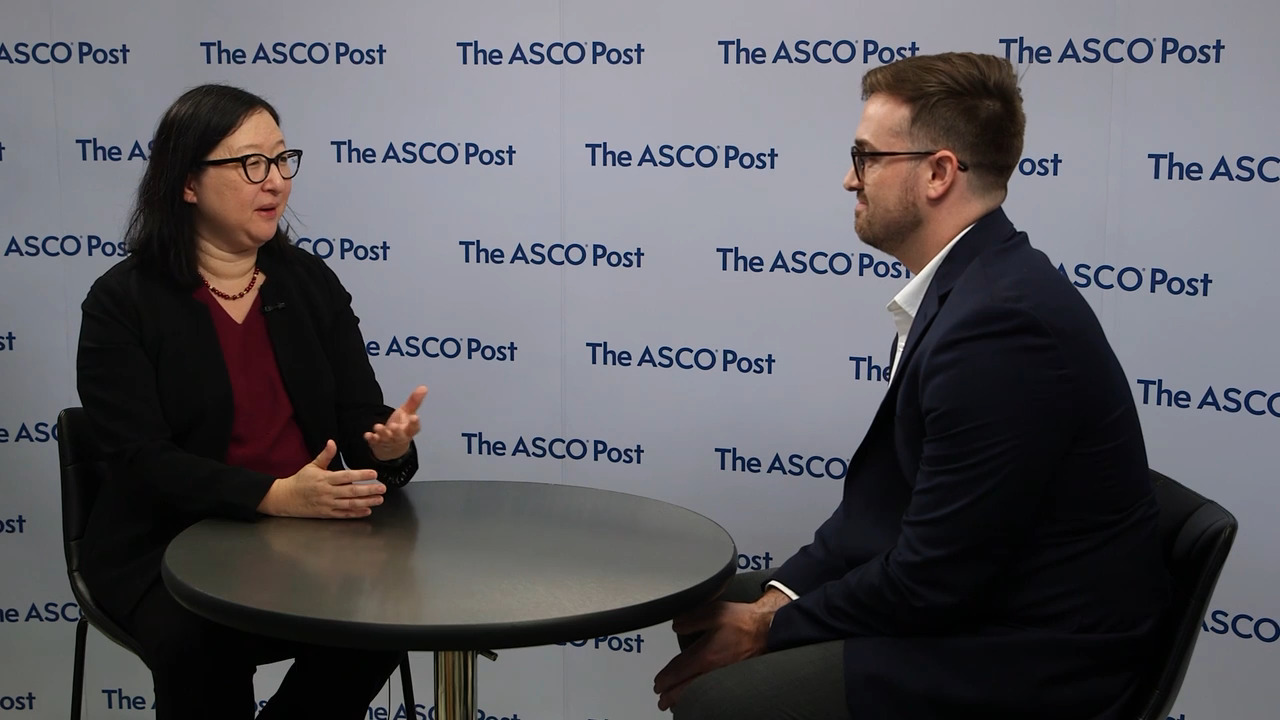Transcript
Disclaimer: This video transcript has not been proofread or edited and may contain errors.
So the standard treatment for the management of women with early stage cervical cancer is a radical hysterectomy, which involves the removal of the uterus and cervix, of course, but also the removal of parametrial tissue in upper vagina, which is what is associated with the greater morbidity of the procedure, as well as the potential complications and quality of life impacts issues on the bowel and bladder and sexual function. What we've noticed in retrospective studies is that the rate of parametrial infiltration in women meeting low risk criteria, and that means women with lesions under two centimeters and with limited stromal invasion of the cervix based on the preoperative MRI or on the LEEP and cone, these women meeting low risk criteria, in fact, have a very low rate of parametrial extension, approximately less than 1%.
And so the question is, in those women with low risk disease, perhaps there is no need to do radical surgery, and perhaps we can in fact do simple hysterectomy, which would be less radical, with less morbidity and better quality of life. So that is the concept of the SHAPE trial. We wanted to confirm this finding in a prospective, randomized study. We have entered 700 women on this study. 350 had a radical hysterectomy, 350 had a simple hysterectomy, and of course, lymph node evaluation was performed as well.
And so the primary endpoint of the study was the three-year pelvic relapse rate at three years. And so the main important findings of the studies shown that they were equivalent in terms of age, stage, histology and grade. Importantly, 45% of the women were age 50 or younger, so young women. And what we found importantly is that the pelvic recurrence rate is very low in both groups, in the range of 3%, which is quite low. And the extra pelvic recurrences were also very low. The three-year pelvic recurrence, which was the main point or endpoint of the study, was 2.52% in the simple hyst and 2.17% in the radical hysterectomy, so 0.35% difference. And that meant that we reached the non-inferiority of the simple hysterectomy compared to the radical hysterectomy in the study. So that's the first important endpoint.
The second element is we looked at surgical complications and we found that women who had a radical hysterectomy had three times more bladder injuries, and nearly twice the number of urethral complications. Additionally, urinary incontinence and urinary retention were statistically worse in the radical hysterectomy group, and it persisted over time, meaning that it stayed longer.
The third important element of the study was the quality of life. We evaluated with the questionnaires, quality of life and sexual health, and all the domains that we analyze, which is sexual function, pain, distress, et cetera, were all in favor of the simple hysterectomy group.
So in summary, for patients with low risk, early stage cervical cancer, the SHAPE trial showed non-inferiority at the three-year pelvic relapse rate. We also show a better surgical complication profile with a simple hysterectomy and better quality of life in sexual health in simple hysterectomy group. And so we believe based on the results of the SHAPE trial, that the new standard of care for the management of women with early stage, low risk disease, carefully evaluated and selected, we think the simple hysterectomy is the new standard of care, and it goes in line with surgical deescalation.




